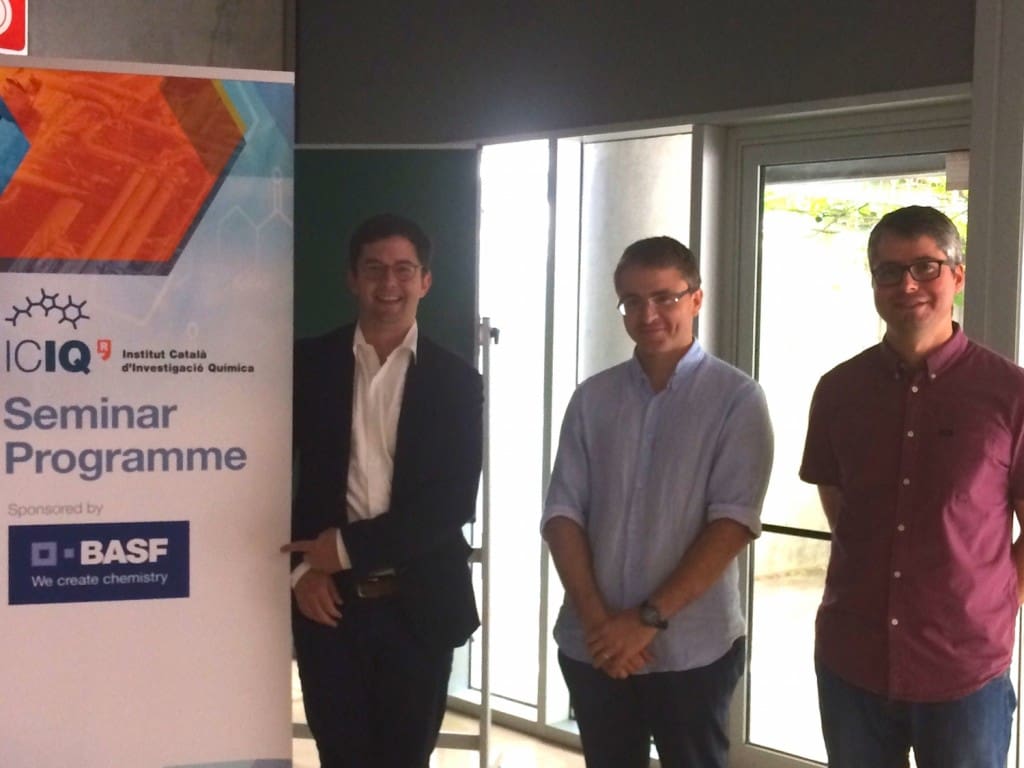
 14/09/2018
14/09/2018
 12:30 h
12:30 h
- Lecturer: Prof. Robert Knowles
- University: Department of Chemistry, Princeton University
- Sponsored by:

Proton-coupled electron transfer in organic synthesis
Proton-coupled electron transfers (PCETs) are unconventional redox processes in which an electron and proton are exchanged together in a concerted elementary step. While PCET is now recognized to play a central a role in biological redox catalysis and inorganic solar energy conversion technologies, its applications in organic chemistry remain largely unexplored. This talk will highlight our group’s efforts to use PCET as a means to address significant and long-standing synthetic challenges in the areas of free radical chemistry and asymmetric catalysis. In particular we are interested in the ability of PCET to enable catalytic and chemoselective generation of synthetically useful radical intermediates via the direct homolytic activation of common organic functional groups that are energetically inaccessible using conventional H-atom transfer catalysts. Our approach makes use of a simple thermodynamic formalism to rationally identify combinations of proton and electron donors that can formally transfer hydrogen to form very weak bonds (BDFEs <25 kcal/mol) and combinations of proton and electron acceptors that are competent to homolyze strong bonds (BDFEs >105 kcal/mol). Moreover, in PCET reactions the radical intermediates are generated as hydrogen-bonded adducts with the conjugate acid or base of the catalytic proton donor/acceptor. We have found that these non-covalent associations can be strongly stabilizing, providing a basis for asymmetric induction in subsequent bond forming events when chiral proton transfer agents are employed.
Other events

Let's create a brighter future
Join our team to work with renowned researchers, tackle groundbreaking
projects and contribute to meaningful scientific advancements




















